26th Sunday in Ordinary Times,
Amos 6:1. 4-7; Ps. 145:6-10; 1 Tim. 6: 11-16; Gospel of Luke 16: 19-3
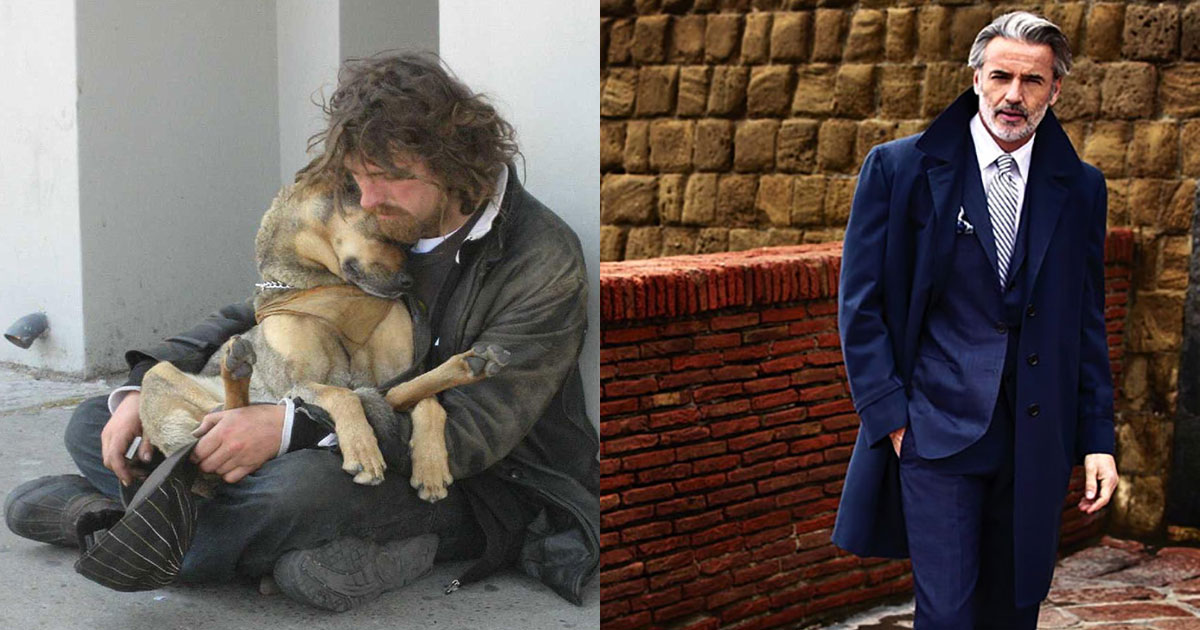
Preached by Msgr Philip Heng, SJ at Cathedral of Good Shepherd, Singapore on 29 September 2019
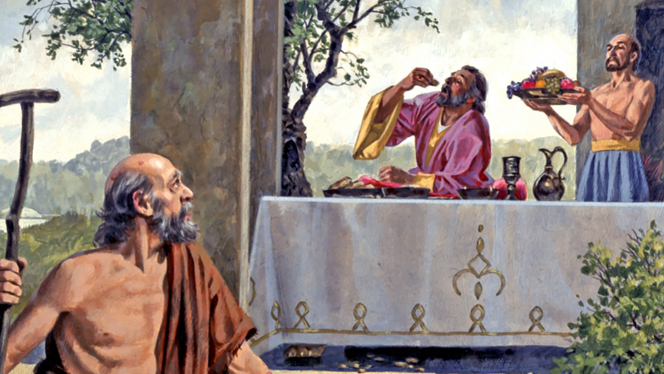 The Gospel story that Jesus tells the Pharisees, of the “rich man and Lazarus” the poor man is very familiar to all of us. However, it is important that we read and reflect on the story more closely. This is because if we are not careful with the details, and read the story out of context, we may have the wrong impression that Jesus is unreasonably prejudiced against the materially rich and in contrast, unjustifiably glorifying the poor and the needy, in the person of Lazarus. It is not unreasonable to expect that it is highly probable to have such a misconception of today’s Gospel story because first, in the dialogue between Father Abraham and the rich man, the rich man pleads, “Father Abraham, have pity on me and send Lazarus to dip the tip of his finger in water to cool my tongue, for I am in agony in these flames.” To this Abraham replies, “remember that during your life good things came your way, just as bad things come the way of Lazarus. Now he is being comforted here while you are in agony.”
The Gospel story that Jesus tells the Pharisees, of the “rich man and Lazarus” the poor man is very familiar to all of us. However, it is important that we read and reflect on the story more closely. This is because if we are not careful with the details, and read the story out of context, we may have the wrong impression that Jesus is unreasonably prejudiced against the materially rich and in contrast, unjustifiably glorifying the poor and the needy, in the person of Lazarus. It is not unreasonable to expect that it is highly probable to have such a misconception of today’s Gospel story because first, in the dialogue between Father Abraham and the rich man, the rich man pleads, “Father Abraham, have pity on me and send Lazarus to dip the tip of his finger in water to cool my tongue, for I am in agony in these flames.” To this Abraham replies, “remember that during your life good things came your way, just as bad things come the way of Lazarus. Now he is being comforted here while you are in agony.”
The next reason that contributes to the possible misconception that Jesus is condemning the materially rich and glorifying the materially poor is because in the whole story, there is neither any mention that the “rich man” was corrupt and unjust and is punished for being so, nor is there any mention that Lazarus the poor man being a man of virtue.
And so, my brothers and sisters in Christ, the very first important point for you and I should take note of is that, this story is neither against material riches and comforts of our lives, nor is this story simply glorifying the poor and needy of this world, where they will be rewarded for all eternity, just because they are poor. In this story, Jesus is essentially cautioning us against living a “self-centred” life.
 More specifically, such “self-centred” living refers to those of us who have received much blessings from God in this life, but are blindly living our lives with little or without any care and consideration for those who are poor and needy. And as for these “poor and needy” let us note that that first level of persons whom Jesus wants us to be more fully aware of in our world are the those who are materially poor and the marginalised of our secular society, viz. the jobless, the homeless who are sick, those who are suffering from mental illness, and are depressed, rejected by society. These hundreds of millions and billions of such people are the “poor Lazarus” of today’s society that Jesus wants us to affirm, accept and treat with dignity and justice.
More specifically, such “self-centred” living refers to those of us who have received much blessings from God in this life, but are blindly living our lives with little or without any care and consideration for those who are poor and needy. And as for these “poor and needy” let us note that that first level of persons whom Jesus wants us to be more fully aware of in our world are the those who are materially poor and the marginalised of our secular society, viz. the jobless, the homeless who are sick, those who are suffering from mental illness, and are depressed, rejected by society. These hundreds of millions and billions of such people are the “poor Lazarus” of today’s society that Jesus wants us to affirm, accept and treat with dignity and justice.
These “Lazaruses” are precious in God’s eyes, but they are sadly marginalised, despised and oppressed of the secular world. The first and fundamental question that Jesus in today’s Gospel is challenging you and I, as disciples of Jesus in today world is to ask ourselves, and search our consciences, “Are we guilty of being the ‘rich man’ in the Gospel story”? In other words, Jesus is asking you and I, “Are we guilty of not only treating the poor and needy of our society harshly, heartlessly and unjustly, just because we have a good education, good job, and worse still because we are “somebody” in the secular world and in the church?
 There is a story of David a wise old teacher who asked his group of young and eager students to go out to look for any small plant and flower growing in some unnoticed corners and dark alleys or dirty cracks in the drains. When the students returned, David asked them to study the plant or flower under a magnifying glass. David said, “Remember to notice the intricate veins, the different shades of green on the leaves and beautiful colours in the flower, where the petals are all so perfectly formed in its symmetry. David also asked his students to cut the stem and see great magic and mysterious wonder working in unison and in its innate wisdom, and observe all these under a microscope; a reality that is not observable on its surface.
There is a story of David a wise old teacher who asked his group of young and eager students to go out to look for any small plant and flower growing in some unnoticed corners and dark alleys or dirty cracks in the drains. When the students returned, David asked them to study the plant or flower under a magnifying glass. David said, “Remember to notice the intricate veins, the different shades of green on the leaves and beautiful colours in the flower, where the petals are all so perfectly formed in its symmetry. David also asked his students to cut the stem and see great magic and mysterious wonder working in unison and in its innate wisdom, and observe all these under a microscope; a reality that is not observable on its surface.
The students were all amazed and awe-filled by their experiment. David then explained, “You see, these seemingly worthless plants and flowers growing in these dump, dark alleys and the dirty drains still reveal the beauty and the Perfection of the Creator. And so, all we need is to have eyes to see and a heart to affirm with humility, that God is infinite Power, Perfection and Love in the world. But, if our eyes and hearts are only drawn towards the glamour, glitter and gold of the secular and materialistic world, then it is no wonder that we treat such unnoticed plants and flowers as trash, instead of marvelling them as mirroring the Presence of the Transcendent God.
In other words, my sisters and brothers in Christ, in today’s Gospel, Jesus is cautioning and challenging you and I to face the reality of our lives. That our dignity and therefore the dignity of every human person is neither how materially rich we are, nor how well connected we are, nor how intelligent we think we may be. Every human person’s dignity and thus, the respect and equality we ought to accord them, is based on the reality that we are each, without exception a child of God; including a person’s dignity, whose existence is in the mother’s womb, at the time of conception. And, that we are each called and challenged to affirm and value each person, as precious in God’s eyes. This is precisely why Jesus proclaims a Gospel of “Preferential Love for the Poor and Needy.”
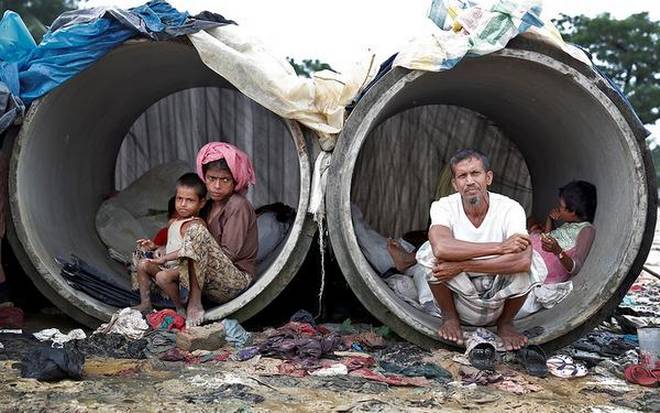 My sisters and brothers in Christ, as every person is precious in God’s eyes, let us not forget that the “poor and needy” that “Lazarus” represents in today’s Gospel is inclusive of ALL peoples who suffering and marginalised in this world. In particular, these “Lazaruses” include the very people in our family and homes. They are our parents, grandparents, children; all those who are aged, sick, depressed, demented . . . in our homes. Jesus in today’s Gospel, is also reminding us, that if we do not treat them with love, care and dignity, then we too are guilty of living the self-centred life of the “rich man” in today’s Gospel.
My sisters and brothers in Christ, as every person is precious in God’s eyes, let us not forget that the “poor and needy” that “Lazarus” represents in today’s Gospel is inclusive of ALL peoples who suffering and marginalised in this world. In particular, these “Lazaruses” include the very people in our family and homes. They are our parents, grandparents, children; all those who are aged, sick, depressed, demented . . . in our homes. Jesus in today’s Gospel, is also reminding us, that if we do not treat them with love, care and dignity, then we too are guilty of living the self-centred life of the “rich man” in today’s Gospel.
What about those who have hurt us deeply like our separated or divorced spouses, divided members of our families where we have refused to forgive and be reconciled with? Are they also not represented by “Lazarus”? And, if we were to reject and shun them, are we not then also guilty of behaving like the “rich man” in today’s Gospel?
There is a story of John a village chief who had three sons. Each son had a special talent. The oldest had the talent for cultivating olive trees and reaping great harvests in his father’s plantation. The second son was a shepherd, and when any sheep is ill, he had the special talent of nursing it to health again. He was very close and attached to all his sheep. The third and youngest son’s talent was being a great financial investor. He was the riches of all the sons. He and his family lived in the largest mansion in the village. Everyone envied him, but also respected him for his kindness and generosity.
One day, John had to leave the village for a distant country for some time, to attend to some important matters. He called his three sons and reminded them that when he was away, they should all use their talents wisely so that upon his return all his villagers would remain happy and prosperous; especially his youngest son, who was financially very well off, to help manage the finances of the villagers.
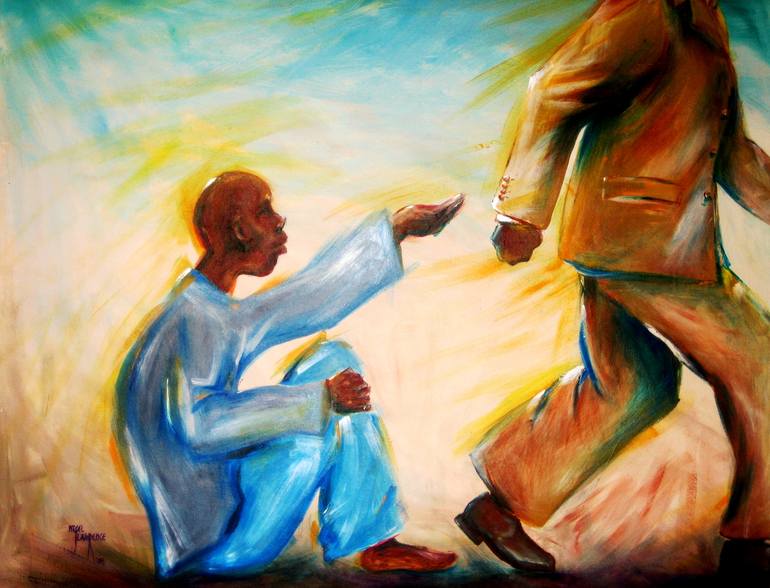 For some time everything went well. However, soon after that, the winter unexpectedly turned very severe; and the strong blizzards and heavy snow and ice were too much for the olive trees to bear. They could not withstand the weather, and began to die. As the winter dragged on, the villagers begged the elder son for help. With a broken heart, he allowed them to chop the olive trees for the firewood they needed.
For some time everything went well. However, soon after that, the winter unexpectedly turned very severe; and the strong blizzards and heavy snow and ice were too much for the olive trees to bear. They could not withstand the weather, and began to die. As the winter dragged on, the villagers begged the elder son for help. With a broken heart, he allowed them to chop the olive trees for the firewood they needed.
As the winter continued, roads and river canals leading to their village was inaccessible. The people began to starve. The second son, realising the crisis of starvation, with a very heavy heart began to slaughter one precious sheep at a time to feed the villagers.
Hearing of the crises that the villagers were going through, John the father returned. The eldest son immediately rushed up to his father, knelt down and begged him for his forgiveness and with tears shared how he had to cut down all the olive trees, for the wood that was needed. The second son then also knelt down and pleaded for his father’s forgiveness, for having slaughtered every sheep he had to prevent the starvation of the villagers.
The father then turned to his youngest son and asked him, what he has done with his talent. His son with down cast eyes said, “Father, I was very concerned about the needs of my family. I saw that the winter was destroying every everyone. And, if I did not provide and protect my family, we too would be destroyed. So, I had to take care of ourselves first, as “charity begins at home.”
His father deeply saddened said, “Your two older brothers have done the right thing; they sacrificed the trees and the sheep to save the villagers, but you, instead of seeing beyond the needs of your family, you were selfish and self-centred in being over protective of your own family needs. Can you not see the destruction and suffering you have caused the villagers, through your self-centered insecurity and greed? How can you live with peace when others are suffering? Should your wealth not have been used for the good and need of others?
 For the first time, the son saw the gravity of how his self-centered living and overprotective concern for his family robbed him of the true peace and fulfilment that he would otherwise have in his heart and home, if he had only shared his wealth with others.
For the first time, the son saw the gravity of how his self-centered living and overprotective concern for his family robbed him of the true peace and fulfilment that he would otherwise have in his heart and home, if he had only shared his wealth with others.
My brothers and sisters in Christ, the youngest son’s awareness of his self-centered ways came too late; many of the villagers have not only suffered too much; many too have died. The youngest son is precisely what the “rich man” in today’s Gospel story is representing, when he, while suffering in the fires and torments of Hades, pleaded, “Father Abraham, I beg you then to send Lazarus to my father’s house, since I have five brothers, to give them warning, so that they do not come to this place of torment too . . . and if someone from the dead goes to them, they will repent.” But, Father Abraham replied, “If they will not listen either to Moses or the prophets, they will not be convinced even if someone should rise from the dead.”
My brothers and sisters in Christ, as I conclude, let us pray that you and I will have the wisdom to go beyond living for ourselves, like the rich man in today’s Gospel. And that, we will have God’s grace to break free from our “self-centred” ways and our insecurities of life, so that we will NOT fall into the temptations and guilt of our sin of omission; and not fail to do the good that God wants us to reach out to, for those who are suffering in the world.
Yes, it is inevitable that many who hear today’s Gospel challenges of Jesus would still be unwilling to be detached from our material wealth or will continue to be reluctant to care and reach out to those who are suffering; including those who are in our family, in our relationships and in the world.
![]()
And if we truly call ourselves disciples of Jesus, in today’s world, and unlike the rich man of today’s Gospel, wish to receive the gift of Eternal Life that God wants to give us, and not find ourselves in the torments of Hades, then let us beg God to live more fully and wholeheartedly in the wisdom of the Gospel, that Jesus Himself has shown us, and taught us.
Adapted from: The Sower’s Seeds, 100 Inspiring Stories for Preaching, Teaching & Public Speaking; by Brian Cavanaugh, T.O.R.; Paulist Press, New York, Mahwah, 1990; Nos.73, pp 57-58; Nos. 80, William J.Bausch, pp. 63-65.
Msgr Philip Heng, S.J.
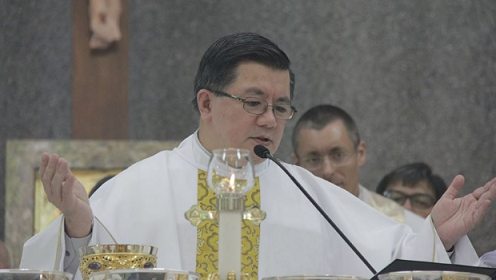
besucherzaehler.co from 1st October 2019
